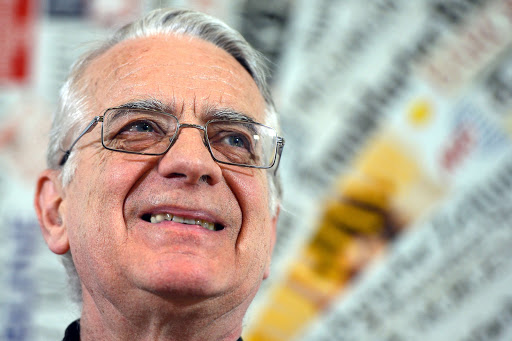Tuesday, August 23
~
1. Should the Pope excommunicate Nicaraguan President Daniel Ortega?
2. Father Lombardi looks back on his years of service to three popes
3. Church taxes in Germany do not deserve their bad reputation
~
Should the Pope excommunicate Nicaraguan President Daniel Ortega?
For many observers, the situation in Nicaragua—including the arrest of a bishop, hostile government statements against the Church, etc.—now requires that the Pope take “a clear and unequivocal position.” The Catholic Herald suggests that “excommunication – or at least a warning of excommunication – not just words of disappointment, may be the next step against Ortega and his cronies.”
While the Pontiff and the Vatican have already spoken out on the issue, notably during last Sunday’s Angelus, “this acknowledgement also seemed not to match the horror of what is unfolding in the country,” the British media outlet says. The Pope may be concerned that this will exacerbate tensions, but it seems “that ship has already sailed,” it adds.
For the Catholic Herald, the Vatican should “recognise that the Church forms the main democratic opposition to Ortega, and – like China – is a threat to state tyranny since it acts as a counter to the regime and an alternative focal point for loyalty.” The article sharply criticizes “a Vatican which is still accommodating the Chinese Communist Party (CCP) through a deal which has done little to stop the persecution of Catholics, and is also doing little to speak up against the persecution of Christians worldwide.”
Catholic Herald, English
Father Lombardi looks back on his years of service to three popes
The former director of Vatican Radio and the Holy See Press Office turns 80 on Monday, August 29. The Italian Jesuit, who served John Paul II, Benedict XVI, and Francis, looks back on his long and astonishing career in an interview with the Italian bishop’s conference daily.
Federico Lombardi graduated from the University of Turin with a degree in mathematics in 1969, and was ordained a priest in Germany in 1972, where he served as chaplain to Italian expatriates. With this background, he did not seem predestined to serve in papal communications, but his path gradually led him to embody with efficiency and benevolence the function of “spokesman” of the pope, as director of the Vatican press office between 2006 and 2016. His quarter century at the helm of Vatican Radio, from 1990 to 2016, also left its mark on a whole generation of journalists.
While he was particularly close to Benedict XVI and remains so as president of the Ratzinger Foundation, he also served Pope Francis during the first three years of his pontificate, with whom he shares “the language of Ignatian spirituality.” He emphasizes the “breath of fresh air” that the Argentinean pope has brought “inside and outside the Church.” A few days before reaching the double milestone of 80 years of age and 50 years of priesthood, Fr, Lombardi is serene. “I live my ministry with hope and faith, looking without nostalgia at the glorious past of my Order” and “always nourishing confidence in the future of the Church, and of those who will come after me,” he says.
Avvenire, Italian.
Church taxes in Germany do not deserve their bad reputation
The controversy surrounding the use of $820,000 by the Archdiocese of Cologne for communication consulting for Cardinal Rainer Maria Woelki—then facing a lack of public confidence due to the crisis of abuse in his diocese—has brought the German Church’s use of money into disrepute.
According to Christof Haverkamp, the author of this article and spokesman for the Catholic Church in Bremen, the church tax is being called into question based on this incident.
According to a survey, 67% of Germans support the abolition of the church tax. However, Haverkamp recalls all the services performed by German dioceses thanks to the money from this tax. Aid to refugees and the homeless, schools, nurseries, cultural and pastoral services: the German state also benefits from delegating some of these services. He concludes: “In short, the church tax system has proven its worth. However, control can be improved, as can transparency in spending.”
Katholisch.de, German.

